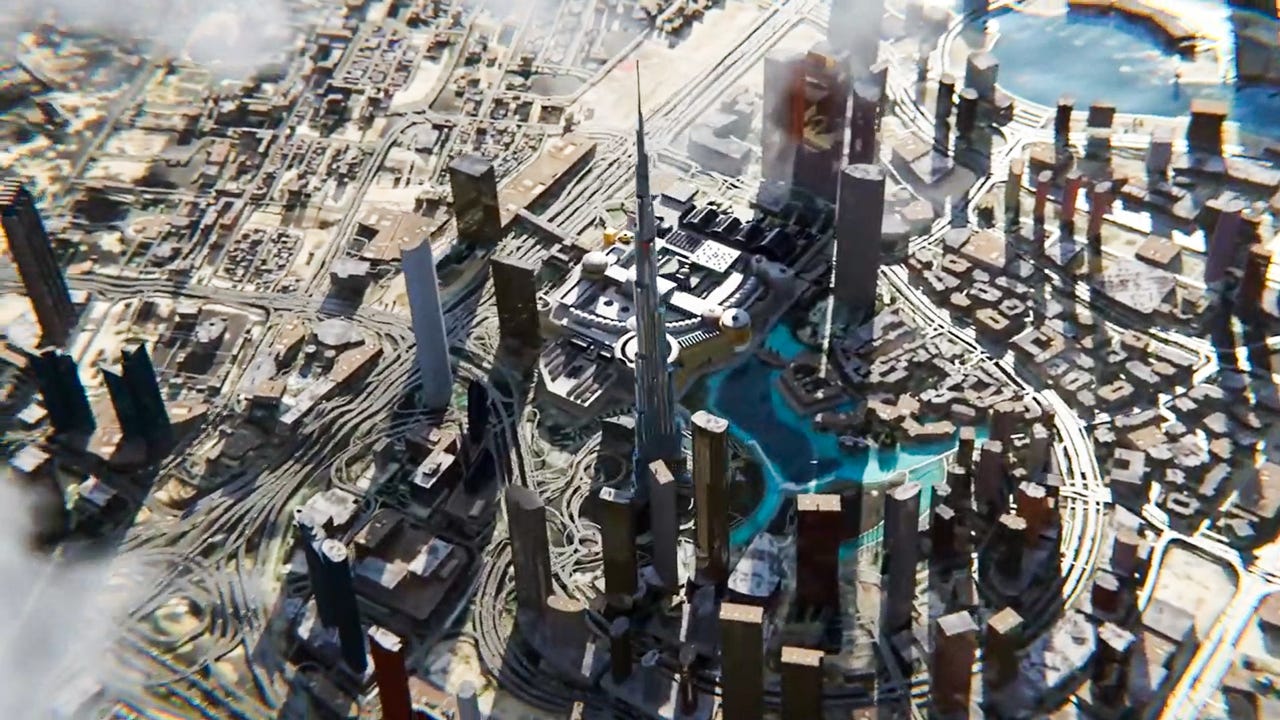MBRSC & SpaceData to develop advanced digital twins of Dubai
Digital twins to support Dubai's tourism, economy & emergency response
#UAE #SpaceTech – Dubai-based space hub Mohammed Bin Rashid Space Centre (MBRSC) has signed an MoU with Tokyo-based startup SpaceData to develop advanced digital twin solutions for Dubai and future space missions. The collaboration will deliver a number of key platforms including: a high-fidelity lunar digital twin to enhance space exploration and astronaut training, and a detailed digital twin of Dubai to support new digital experiences for business and tourism, plus a digital twin of the city for disaster prediction and emergency response planning. These digital environments will leverage real-world data to create advanced digital twins to improve decision-making.
SO WHAT? – Digital twin technology is revolutionising industries, from urban planning to space exploration. In the Middle East large urban developments can often be implemented much faster than in the West, and so digital twins can play a critical role in agile urban planning. Dubai’s 2040 Urban Master Plan envisions five new urban areas over the next two decades, together with city-wide transformations in transport, pedestrian access, district operations and public spaces. The city expects to welcome 2.5 million more residents by 2040. So, whilst there are multiple digital twin projects in development, the MBRSC-SpaceData partnership could prove to be instrumental to Dubai’s city planning.
Key facts about the agreement between MBRSC and SpaceData:
Mohammed Bin Rashid Space Centre (MBRSC) and Tokyo-based spacetech startup SpaceData have signed an MoU to develop advanced digital twin platforms for space and Earth-based applications.
A lunar digital twin will enhance UAE’s space exploration by providing a high-fidelity simulation environment based on real rover observation data.
This lunar digital twin simulation will support UAE astronauts’ training, replicating lunar surface conditions with detailed 3D spatial and physical environmental data.
Meanwhile, SpaceData will create a highly detailed simulation of Dubai’s urban environment to boost tourism and economic development.
Virtual tourism solutions will enable global visitors to experience Dubai’s landmarks digitally, expanding market reach.
The disaster prediction digital twin will incorporate satellite and meteorological data to simulate large-scale disaster scenarios and improve emergency response.
MBRSC is a key player in the UAE’s space ambitions, operating satellite programs, astronaut missions, and lunar exploration projects.
SpaceData is a Tokyo-based startup focused on integrating space technologies with AI, 3D computer graphics, and digital twins.
This initiative aligns with the UAE’s broader vision of becoming a leader in space technology and digital innovation.
ZOOM OUT – According to global professional services firm PwC, digital twin technology is going to have an increasingly vital role to play in managing the next phase of urban development. With the ongoing digitisation of cities around the world, digital twins have a clear role to play in helping to ensure that city’s are managed in a way that is cost-effective, efficient, environmentally conscious and safe. With most leading cities now leveraging vast amounts of data from a wide variety of different sources, digital twins can provide platforms to make real-time and simulated data more useful in the decision-making process. They’re expected to have a massive impact on city planning, project planning and implementation, city and district operations, infrastructure and services, emergency response, tourism, business, education and society as a whole.
LINKS
[ Written with the assistance of AI ]


